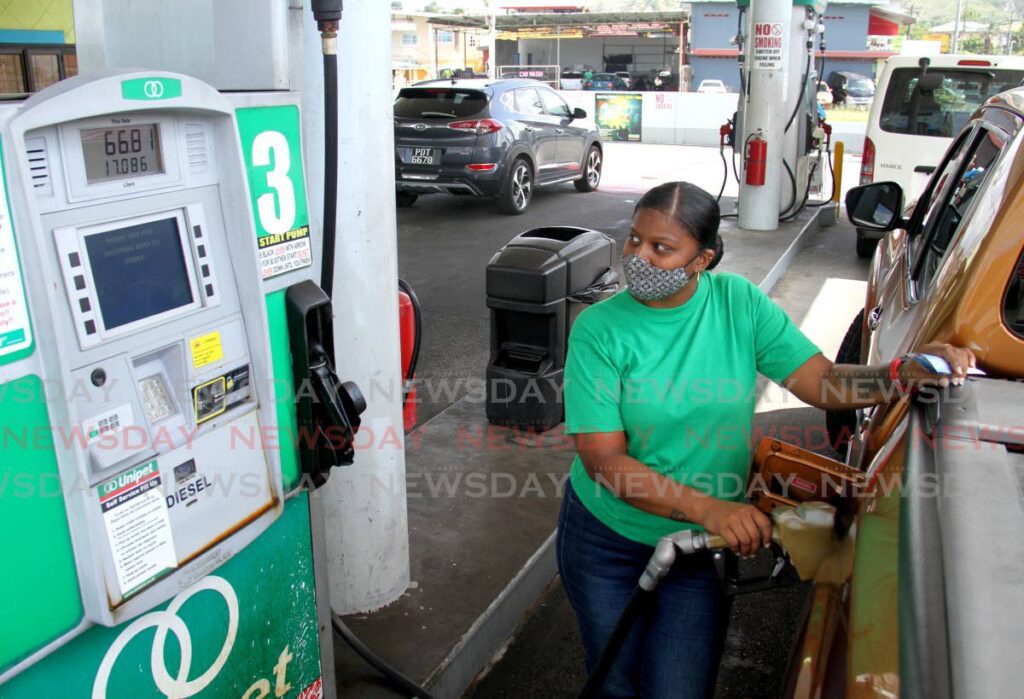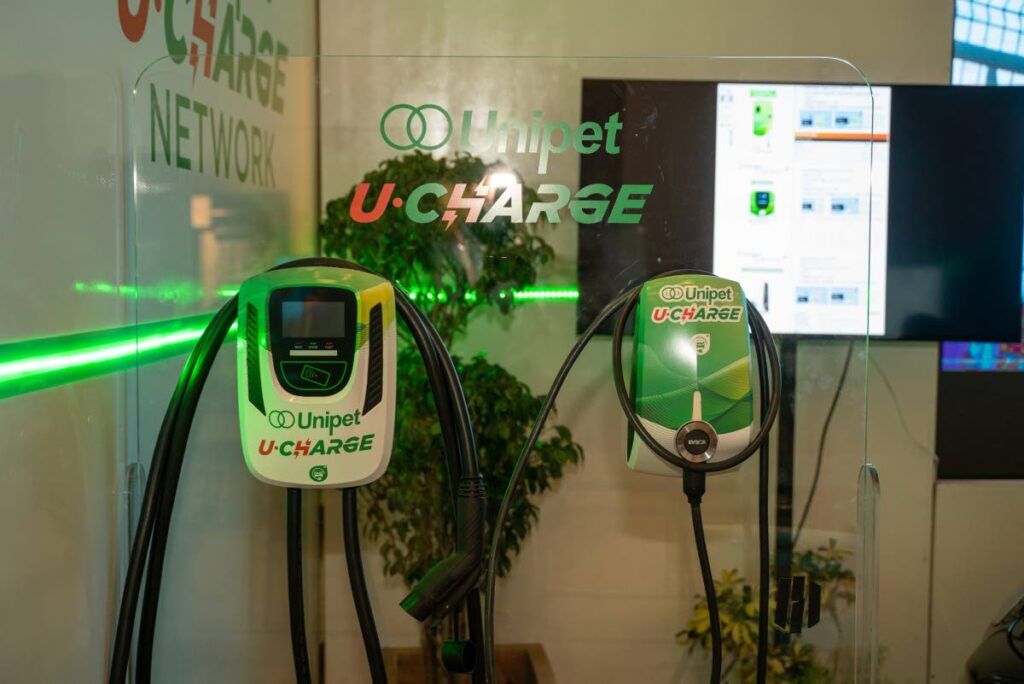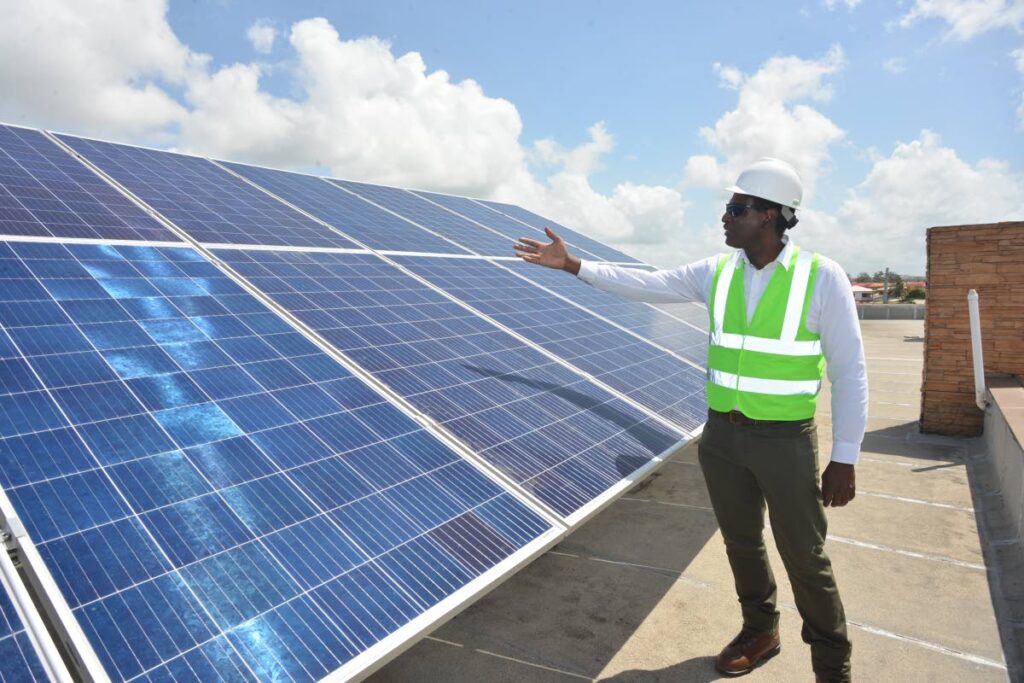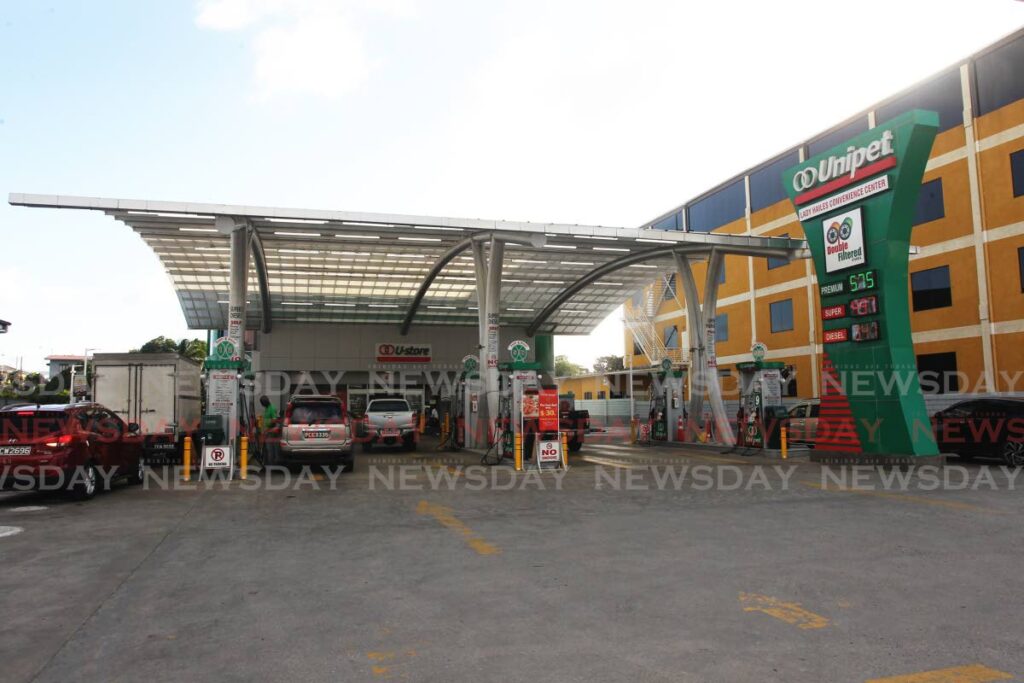Unipet's fuel future: service station company looks to renewable energy

Fuel is a big item on everyone’s budget, but it isn’t the only item. Consumers having to face higher prices at the pumps since last year are now more discerning with how they use their fuel and more demanding on the level of service they get whenever they go to fuel up.
This is why Dexter Riley, CEO of the United Independent Petroleum Company (Unipet) – one of the main fuel service stations in the nation – believes that if you are going to pay higher prices for fuel, then you should at least get better value for your money.
“We have been living with escalation with everything else for many years,” Riley said. “Responsible consumers, which we all have, look at fuel the same way as they do everything else. They rationalise it and they see if they could get better value.”
Speaking with Business Day at the Unipet booth during the Energy Chamber’s three-day conference at the Hyatt Regency, Port of Spain on Tuesday, Riley said this was one of the factors that contributed to Unipet’s ongoing transition from a service station network to a convenience energy service.
Riley said this new and improved Unipet will provide a different experience in how customers consume and interact with fuel by providing a variety of fuel sources – whether it is gas, CNG or electricity, giving customers greater control and leveraging digitalisation.
Leading the charge with renewables
Riley said Unipet made the commitment to lead the charge in utilising renewable energy, continuing their 25-year-old tradition of being catalysts of change.
“In business it is sometimes hard to say when changes would come in and sometimes it is even harder to say the details of how, but what we could say is we have a commitment to this change,” he said.
Unipet has thus far installed five charging stations in four of its locations – Brentwood, Lady Hailes Avenue, Barrackpore and two at its head office in Aranguez. Its first station was installed in its Brentwood service station in 2020.
He added that the service would be free for the public as long as it continues to be economically viable for the company.
“It's a small community of EV drivers, but with the potential of growing over the years. So we want to help the country make that change by making that service available free, for as long as we can.”

He said the chargers are powered by the electricity grid, as solar panels may not have the right load to properly operate them. The solar panels would only work if they had an additional battery or storage capacity so the power could be stored. Riley said as the technology evolves Unipet will make the investments.
In the meantime, Unipet uses solar power in other operations in their service stations. In Brentwood, for example, Unipet uses solar panels to power its pumps and lights.
Unipet also powered 42 per cent of the computers in the Faculty of Science and Technology at the University of the West Indies as part of its drive to be more environmentally conscious and socially responsible.
“We did that by incorporating the master's degree students involved in understanding the technology and then deploying new technology. So they didn't just get some solar panels but the students got experience and insights and theory behind how it works.”
Riley added that Unipet has also engaged customers privately for solar panel installations which power appliances independently through a battery pack. Through the service a customer may be able to power several different appliances such as TVs, microwaves, fridges and even AC units.
“We can do it,” he said. “If someone requires that service we can do it. Over the next couple of months we are building up our inventory so we could have an on-site location that could be more responsive and give people access to options. What you see happening is that they are switches so you can power up part of your home as an option.”
While the government does not have legislation in place for the use of solar energy on the national grid just yet, Riley says the legislation is evolving.

- PHOTO COURTESY UNIPET
“We really appreciate the government's pronouncements or our commitment to make that change. And we do recognise that it is not sustainable for subsidies whether it is fuel or electricity.”
Cleaner fuel could be on the way
As solar energy and CNG options continue to diversify the sources of fuel for drivers, Unipet is also hoping to improve on its carbon footprint by providing even cleaner petroleum.
He said that the current petroleum, a double-filtered formula which was introduced in 2010 has already provided customers with cleaner fuel.
Normally each fuel pump has one filter which traps sediment, micro-fine particles and other impurities. With the double-filtered system an additional filter is installed in the pumps to ensure that whatever is missed by the first filter, could be trapped by the second. The double filter also removes any moisture that is in the fuel.
Riley said at the energy conference that a new evolution in improving the quality of fuel is now being discussed with the regulatory bodies. While he could not say much about these new introductions, Riley said that Unipet is working on options which they plan on rolling out in a responsible way with the approval of the regulator.
He said all these efforts were part of Unipet’s drive to bring more value to customers.
“We have been asking ourselves how we can go beyond our double filter; how can we improve the quality and experience – because it is not just the quality of a product that people pay for, it is the quality of experience and the control over that experience.”
Unipet is also expanding on customer experience through the use of technology. Director and chief operations officer of Brain Station 23 Ltd, MJ Ferdous, said the collaboration between Unipet and Brain Station 23 would result in a transformation in customer experience.
“For example, let's say you have a car and you are part of a company and you have a fuel allowance. The company can see how much you are withdrawing per month or per week. They can track what your volume of fuel consumption is. They can even forecast the amount of fuel you may use,” Ferdous said.
He said the system could also be used for personal customers instead of corporate customers. With the same technology, customers could buy snacks and food items from Unipet's stores, they could pay for gas, and they can do the same monitoring and tracking that corporate bodies may be able to.

“This will radically change the customer experience and it would also improve efficiency,” Ferdous said.
Riley said Unipet’s commitment and drive to the future would be beneficial to both the customer and to the company. He said while Unipet has evolved from a process-driven business to a technology-driven business, the commitment and dedication of the leadership, management and staff at Unipet has not changed. As the company begins to expand toward Guyana, Riley said Unipet plans to provide the same service regionally and internationally.
“We are not just talking about better quality fuel and more value in the experience. We want to make our experience available as a best practice to wherever it can add value in the world.”

Comments
"Unipet’s fuel future: service station company looks to renewable energy"